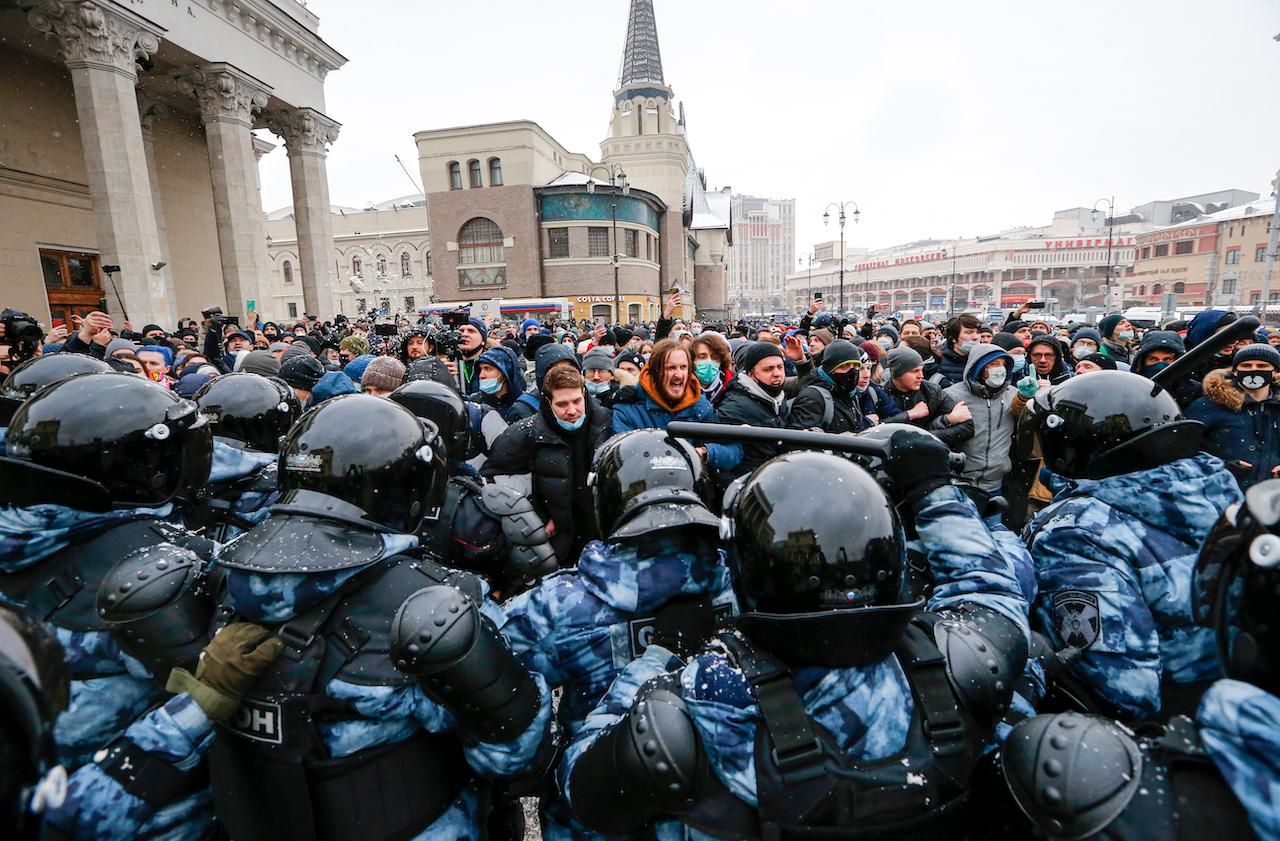Germany, Poland, Sweden expel Russians in diplomatic tit-for-tat over Navalny demos
Moscow says the expelled EU diplomats had participated in demonstrations in support of jailed Kremlin critic Alexey Navalny.
Three European countries have thrown out Russian diplomats in response to the expulsion of European Union (EU) officials who were part of a delegation to Moscow headed by Josep Borrell, the EU’s foreign policy chief.
The Guardian reported on Monday that German, Polish, and Swedish officials expelled one Russian diplomat from each of their respective nations in response to Moscow’s removal of three EU officials it said had taken part in anti-government demonstrations in support of Alexei Navalny, the jailed anti-Putin dissident.
Monday’s move was a “clear response to the unacceptable decision to expel a Swedish diplomat who was only performing his duties”, said Ann Linde, Sweden’s foreign minister, according to The Guardian.
Germany’s foreign office told the newspaper that the German official expelled by Moscow last week was “carrying out his task of reporting on developments on the spot in a legal fashion”.
Poland’s foreign office added that it was joining the effort “in accordance with the principle of reciprocity and in coordination with Germany and Sweden”.
Relations between the EU and Russia have continued to sour in the weeks following Navalny’s poisoning and subsequent recovery in a German hospital and then jailing on his return to Russia.
Moscow’s foreign agency responded to Monday’s events at a press conference, calling the expulsions “unjustified and unfriendly” while adding that the expelled officials “were not the initiators of the collapse in relations”.
The EU’s Borrell met with Russian Foreign Minister Sergey Lavrov for discussions and wrote in a blog on his return to Brussels, “The messages sent by Russian authorities during this visit confirmed that Europe and Russia are drifting apart. It seems that Russia is progressively disconnecting itself from Europe and looking at democratic values as an existential threat.”
Navalny’s treatment was one of several topics President Biden raised in his first call with Russian President Vladimir Putin.
“I made it clear to President Putin, in a manner very different than my predecessor, that the days of the US rolling over in the face of Russia’s aggressive actions – interfering with our elections, cyberattacks, poisoning its citizens – are over,” Biden said at the State Department.
“We will not hesitate to raise the cost on Russia and defend our vital interest and our people.”
Subscribe to our newsletter
To be updated with all the latest news and analyses daily.
